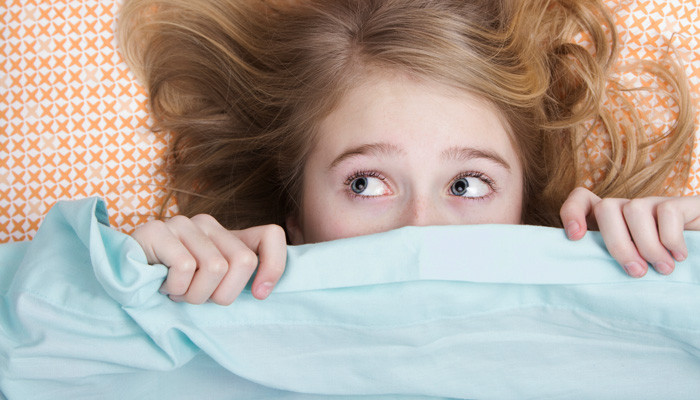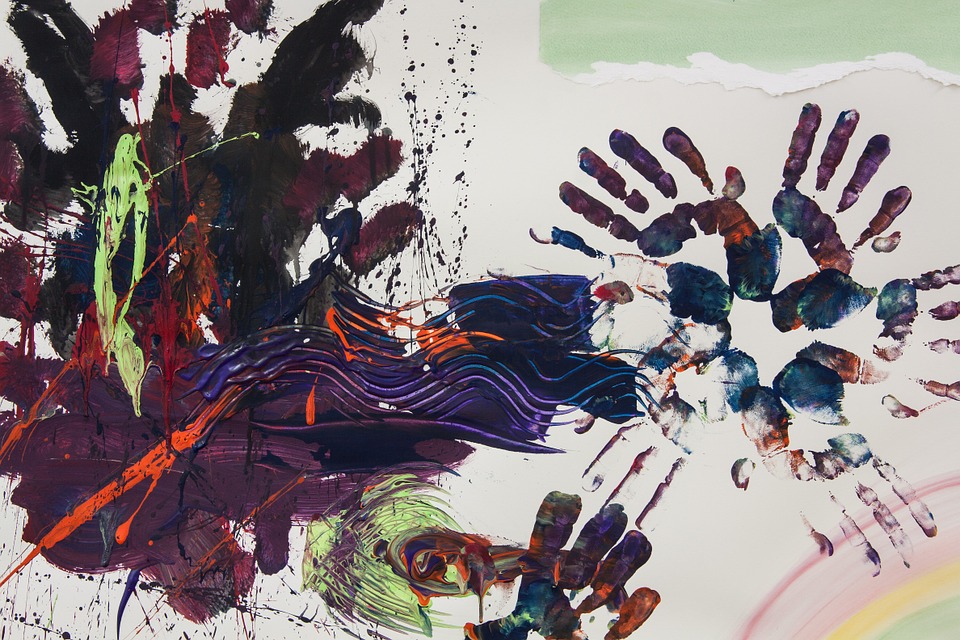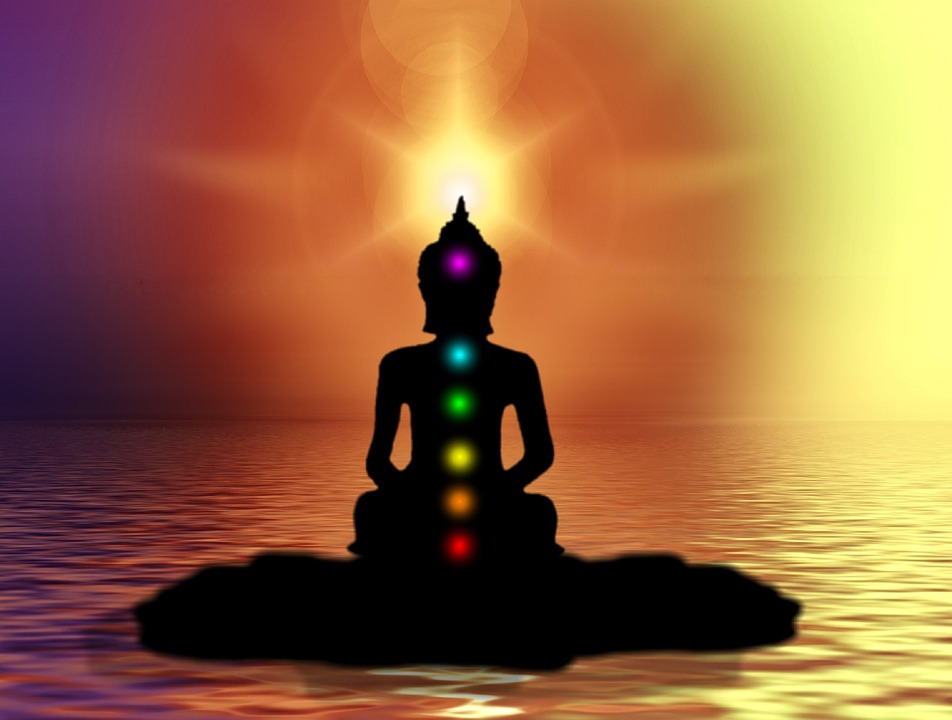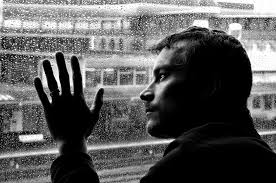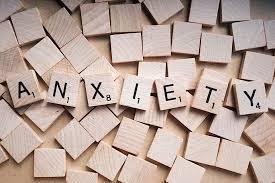Worrying is a natural tendency among children. While some worrying helps children to excel, too much worrying can lead to anxiety related disorders. From friendship woes to homework to fear of failure, there could be a lot of factors that can lead to anxiousness in a kid. This problem is mostly witnessed in school going, children. Some of the common symptoms that are portrayed include the need to be perfectionists, seeking of constant reassurance, getting sick worrying too much, scared of participating in a group event.
How to prepare your child to overcome anxiety?
Pass on the anxiety: Anxiousness has to be passed in form of something. Certain activities, therefore play great strokes in addressing anxiousness. Teach your kids to distress in the form of TV or teach them to write when they are anxious. This not only takes off anxiety from the equation, it helps a kid to relax without the fear of failure.
Reassurance: Kids suffering from anxiousness often need repeated reassurance about the task in hand. The task here for a parent is to make their kid understand that failure will not impact their relationship with their parents. Often the failure of letting someone down makes a kid anxious. Constant reassurance will curtail the tendency. This being said, parents should ensure that this doesn’t become a habit for the kid. The idea is to make them comfortable and not letting your child dependent on you.
Relaxation techniques: A study published by the Journal of School Counseling argued that kids who practice relaxation techniques are far less likely to suffer from anxiety and stress related disorders as compared to their peers. Some of the relaxation techniques that can be easily learned and practised include breathing exercises, meditation, yoga and so on. This exercise helps children to focus and concentrate more.
A brief bedside art therapy may improve mood and decrease the levels of pain and anxiety in patients with cancer, a study claims. In the study published in the European Journal of Cancer Care, a bedside visual art intervention (BVAI) facilitated by art educators improved mood and reduced pain and anxiety in inpatients with haematological cancers.
The study was conducted on 19 female and two male patients admitted to the inpatient bone marrow transplant and haematologic services at Mayo Clinic School of Medicine-Rochester in the US. They were invited to participate in a BVAI where the goal of the session was to teach art technique for about 30 minutes. Significant improvements in positive mood and pain scores, as well as decreases in negative mood and anxiety, were observed, the researchers said.
Patients perceived BVAI as overall positive (95 per cent) and wished to participate in future art-based interventions (85 per cent), they said. According to the researchers, the findings indicate that experiences provided by artists within the community may be an adjunct to conventional treatments in patients with cancer-related mood symptoms and pain.
Just a single session of meditation can alleviate anxiety and boost heart health, a study has found.
Researchers from Michigan Technological University in the US found that that 60 minutes after meditating the 14 study participants showed lower resting heart rates and reduction in aortic pulsatile load – the amount of change in blood pressure between diastole and systole of each heartbeat multiplied by heart rate.
Additionally, shortly after meditating, and even one week later, the group reported anxiety levels were lower than pre-meditation levels.
It sounds like a late-night commercial: In just one hour you can reduce your anxiety levels and some heart health risk factors. But a recent study with 14 participants shows preliminary data that even a single session of meditation can have cardiovascular and psychological benefits for adults with mild to moderate anxiety.
“Even a single hour of meditation appears to reduce anxiety and some of the markers for cardiovascular risk,” said John Durocher, assistant professor at Michigan Technological University.
While its well-documented that meditation over the course of several weeks reduces anxiety, there have been few comprehensive research studies on the benefits of a single meditation session.
Researchers wanted to understand the effect of acute mindfulness on cognition and the cardiovascular system to improve how anti-anxiety therapies and interventions are designed.
They designed the mindfulness study to include three sessions. First, in an orientation session researchers measured anxiety and conducted cardiovascular testing by measuring heart rate variability, resting blood pressure and pulse wave analysis;
Then there was meditation session that included repetition of the cardiovascular testing plus the mindfulness meditation – 20 minutes introductory meditation, 30 minutes body scan and 10 minutes self-guided meditation – as well as repeating cardiovascular measurements immediately following meditation and 60 minutes after.
This was followed by a post-meditation anxiety test a week later.
During a body scan, the participant is asked to focus intensely on one part of the body at a time, beginning with the toes. By focusing on individual parts of the body, a person can train his or her mind to pivot from detailed attention to a wider awareness from one moment to the next.
“The point of a body scan is that if you can focus on one single part of your body, just your big toe, it can make it much easier for you to deal with something stressful in your life. You can learn to focus on one part of it rather than stressing about everything else in your life,” said Hannah Marti, a recent Michigan Tech graduate.
Depression and Anxiety are often observed to co-exist. Too much mental stress is a trigger that can result in mental disturbances leading to Depression or Anxiety.
Stress is actually a normal physical response to events that make you feel threatened. When you sense danger, whether it’s real or imagined, the body’s defense kicks into high gear in a rapid, automatic process known as the “fight-or-flight” reaction, or the stress response.
However, excessive stress when left unmanaged can result in several illnesses including mental disorders such as Depression and Anxiety. Ayurvedic massage therapies are a 100% safe and proven treatment for such mental disorders.
Here are the 6 Ayurvedic ways to beat Depression and Anxiety that are offered at NuAyurveda clinic:
1. Abhyangam: It involves the full body massage with medicated herbal oils. Abhyangam therapy increases blood circulation to remove metabolic wastes and toxins from the body. It stimulates vital pressure points, which leads to nervous stimulation and reduction in Stress, Anxiety, and Depression.
In this therapy, two therapists apply herbal oils over the whole body (Head to Toe) of the individual in rhythmic and synchronised manner by using the right pressure. The massage goes on for 45-50 minutes in seven different positions. Abhyangam balances the Doshas and treats Mental, Emotional, and Physical disorders.
This therapy boosts Immunity and leads to well-being by preventing Stress and Depression. It is also effective against Insomnia, Paralysis, Arthritis, and Spondylosis disorders.
2. Padabhyangam: This Ayurvedic massage includes the stimulation of nerve endings and vital pressure points present in the foot to balance the Doshas. This also promotes mental calmness and relieves Stress and Anxiety.
A therapist applies herbal oils on the foot using precise hand movements. This leads to the improvement in blood circulation in the lower leg, which revitalises the tired feet.
Padabhyangam eliminates psychological disorders such as Nervousness, Anxiety, and Insomnia and prevents Depression. It also prevents Muscle cramps, boosts Fertility, and reduces Swelling and Pain in the lower leg region.
3. Nasyam: Nasyam is a part of Panchakarma therapy and involves the administration of medicated oils or drugs through nostrils. This treatment stimulates the vital centres of the brain to overcome problems such as Stress, Anxiety, Depression, and Insomnia.
Nasyam starts with a facial massage or steam application to the face, forehead, ears, and neck. Afterwards, a therapist instills herbal oils, juices, or powders through nasal route, which then spread through venous (blood circulation) and nervous system into the areas present around the nostrils. Finally, the patient is given lukewarm water to gargle and medicated smoke for inhalation.
Nasyam therapy treats the disorders of ear, nose, and throat. It unblocks the energy channels and gets rid of Depression, Anxiety, and Headache. Moreover, it boosts Immunity and improves eye health.
4. Pizhichil: Pizhichil treatment involves the squeezing of warm medicated oils to help the system retune itself thereby inducing both physical and mental relaxation. The stress and tension building up in the system due to various factors often lead to oxidative stress, which can be effectively combated by this Ayurvedic treatment.
Pizhichil starts with a gentle and synchronised massage on all parts of the body excluding the head. A cloth dipped in lukewarm herbal oil is squeezed on the body of the patient followed by oil rubbing over the body. The dipping of cloth in medicated herbal oil is repeated periodically, and the entire procedure takes about 1 hour.
Pizhichil rejuvenates the body and boosts the functioning of the nervous system. It reduces Vata dosha, Tension, Anxiety, Depression, Muscular aches, Rheumatic problems, Insomnia, and Sexual problems. It also tones the skin by promoting the blood circulation.
5. Kizhi: Kizhi enhances circulation and reduces the oxidative stress thereby relieving the psycho-physical symptoms of stress.
This therapy makes use of powders, herbs, rice, sand tied in a muslin cloth to make small satchels. These powders, herbs, rice or sand sacks are then heated and lightly pounded over the body or specific parts of the body as needed.
Kizhi massage provides dry heat which treats aggravated Vata and Vatakapha conditions. It is an effective treatment for Depression, Anxiety, Muscular cramps, Swelling, Obesity, Lower back pain, Diabetes, Osteoarthritis, and Spondylosis.
6. Shirodhara: This healing massage involves the continuous pouring of medicated oil on the forehead with pendulum motion for a specific period of time. Shirodhara may also include the pouring of decoctions, buttermilk, or even water.
Continuous pouring of oil on the forehead stimulates and soothes the hypothalamus to induce sleep by reducing Stress. This therapy is performed for 30 to 60 minutes, depending on the condition of the person. The person is also given a gentle head massage before or during the procedure.
Shirodhara boosts the immune system and improves the blood circulation around the head and face to effectively treat Hypertension, Insomnia, Depression, and Jet lag.
How Does Body React When You Are Stressed?
When the body perceives a threat, the nervous system responds by releasing a flood of stress hormones, including adrenaline and cortisol. This actually prepares your body to be more alert. However, when stress becomes a regular phenomenon, high levels of cortisol can show several detrimental effects on the body. Increased cortisol level is associated with High blood pressure, Sugar imbalance, Muscle stiffness, and Increased heart rate. These physiological effects lead to health issues such as Pain, Fatigue, Low immunity, Sleep problems, Depression & Anxiety, etc.
The rapid beating of heart, the urge to move out to some other place and the constant panicky feeling, how many of us can really say that we like being anxious? The answer is that we do not, so how can we deal with it?
The first step that you should consider is to take professional help, therapists who are skilled and have a wide knowledge on this topic. Also, other than professional help you can also help yourself in your day to day life.
The Right Foods
Yes, certain foods could be a major cause for your anxiety and so you will have to be careful what you are eating or even drinking for that matter. Eating habits don’t really cause it but it could simply make the situation worse, so here is a small list of food and drinks that you should avoid.
Coffee
You might like your morning cup of strong coffee but it could be a leading cause of anxiety, so you should try and switch your coffee drinking habit.
Alcohol
You could be drinking now and then for the kicks of it, or may be to unwind, and it kind of takes your stress away and lets your hair down. But as alcohol is a depressant it has a negative effect in the long run..
Sugar and Starch
You might want to eat ice creams and cookies to feel happy, but it is something quite different. The rise and fall of your blood sugar that occurs after you eat these foods can make your emotions go haywire. Try avoiding foods that contain sugar and starch.
Exercise
Exercising is good not just for your body but also for your mental and emotional stability. Most people who face anxiety are not as physically active as they should be. Physical activity actually improves the immune system and releases neurotransmitters that are called endorphins, and it also tired the muscles, and burns away your stress hormones.






